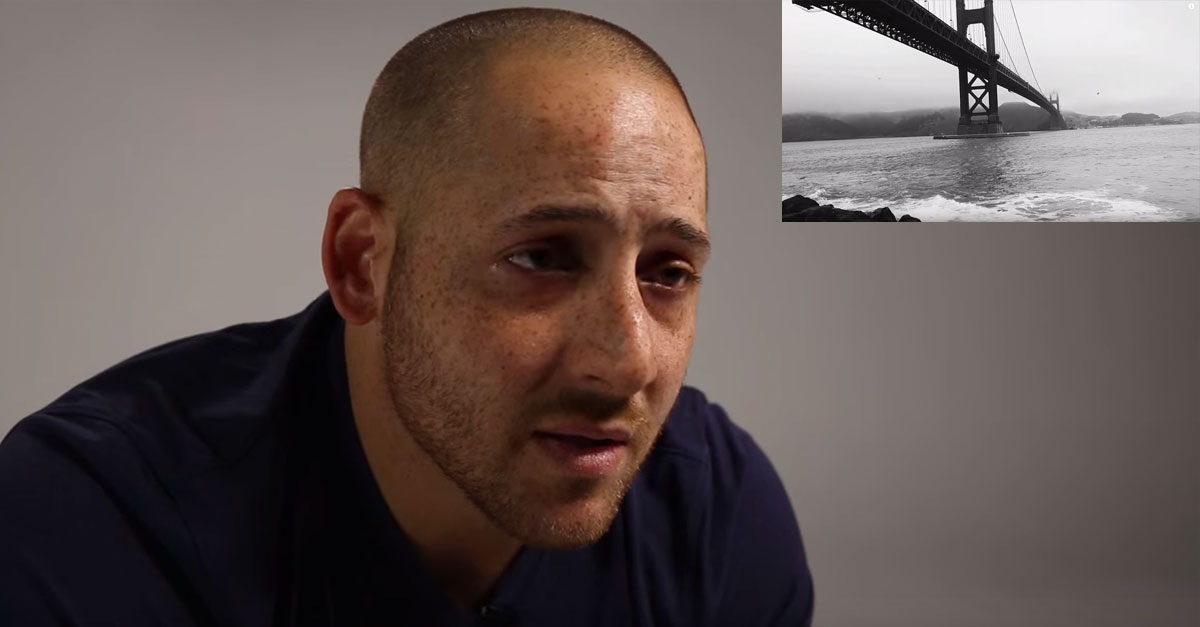Kevin Hines jumped off the Golden Gate Bridge in San Francisco, and despite falling over twenty-five stories down to land smack into the rough ocean water, he somehow miraculously survived.
Less than one percent of people who attempt to commit suicide by jumping off the famous orange San Francisco bridge live to tell the tale. And even those who do manage to escape with their lives, usually end up with debilitating injuries that affect them for the rest of their lives.
Kevin Hines, however, was especially lucky. Not only did he survive the fall, he did so without any lasting injury. Hines, who has suffered from a severe case of bipolar disorder, which plagues him with difficult symptoms including extreme paranoia and hallucinations, from a very early age, has spent his life being transferred from home to home as a child. He grew up convinced that the world was out to get him and that he was a burden to anyone he came to love. That’s why, at the young age of nineteen, he became convinced that his only recourse was to kill himself.
He climbed to the top of the tall bridge, stared down into the ocean depths, and became one of the 2,000 people who, after doing so, have still chosen to make the leap. He later told reporters that he regretted the decision as soon as his feet left the metal railing, but at that point, there was no going back.
After he miraculously survived the fall, he was relieved, and was shocked but glad to discover that despite what the illness in his brain had told him, he actually had quite a few family and friends who wanted him alive. The support of these people as they rallied around him after his attempted suicide was overwhelming.
Since the incident, Hines has achieved a newfound appreciation of life and spends his time trying to raise awareness about mental illness and suicide. He wants to decrease the stigma and help others realize that they are not alone, and he is working towards this by sharing his story with the world. If you or someone you know is considering suicide, please do not hesitate to get help.
Not everyone is as lucky as Hines, and any cry for help, no matter how loud and attention seeking it may seem, or how quiet and nearly imperceptible it is, should be heeded. You or your loved one can speak to someone trained to help people work through those poisonous thoughts by calling the National Suicide Prevention Lifeline at 1-800-273-8255.
If talking on the phone seems too difficult or frightening, there is also an online prevention service IMAlive. No matter what horrible things a person’s brain is telling them, all life is equally important and precious, and help is out there. Reach for it. You or your loved one can get better.
SHARE the love and pass it on!

